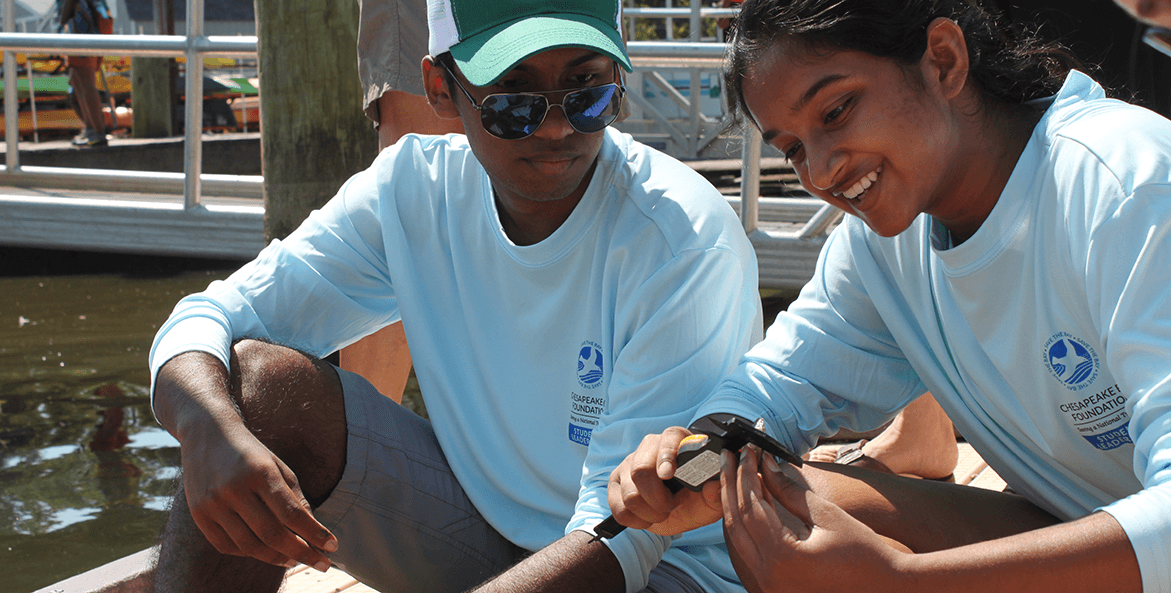For 40 years, the state of Maryland has helped students connect with and learn about the Chesapeake Bay and its rivers and streams. Each year through the State Aided Educational Institutions Program, CBF helped roughly 10,000 student and educators from school districts around the state get outside to learn first-hand about the Chesapeake Bay and its rivers.
This year, that changed.
In the state’s proposed fiscal year 2021 budget, Maryland entirely eliminated the funding that helped make CBF outdoor learning experiences possible and more affordable for Maryland schools. Maryland students and educators are now sharing their personal experiences of learning outside with CBF and urging Governor Hogan and state legislators restore this vital funding for outdoor learning.
While testifying in front of the Maryland Education and Economic Development Subcommittee last week, Anthony Okonkwo, a Poolesville High School senior and CBF student leader, said “environmental education is essential.”
“While school can certainly teach students a great amount of information, it is experiences that teach skills and form mindsets. No classroom is comparable to the outdoors. Even through the lens of a traditional education, the opportunities when learning outside are endless,” Okonkwo continued.
Multiple studies of outdoor educational programs have proven that they have significant benefits for children. A review of several studies published last year in Frontiers in Psychology concluded that students learn “perseverance, self-efficacy, resilience, social skills, leadership, and communication skills” through outdoor education experiences.
Another CBF Student Leader and senior at Annapolis High School Amelia Farrell recently shared her thoughts on the benefits of outdoor learning. “By exploring the Bay, its forests, farms, and streams, seeing Bay creatures up close to learn about them, and talking directly with both scientists and watermen, we are able to learn so much more than we ever would have sitting in a classroom,” she told the Maryland Senate Budget and Tax Committee in a hearing this week. “These vital opportunities are needed to support both education about the Bay and how to be a responsible and well-rounded individual.”
Shari Yesnick, John Poole Middle School science teacher, saw a change in her students after a CBF field experience. “Almost everyone falls in love with their natural heritage,” she said. “For some, it’s their first experience out on the water. For all, it’s a deepening awareness of the Bay as a national treasure.”
The research is clear—outdoor environmental education programs help students learn and connect with the natural world. The future of the Bay and its rivers depends on these student leaders—we must restore this funding.




